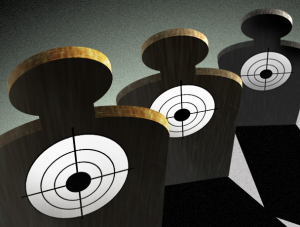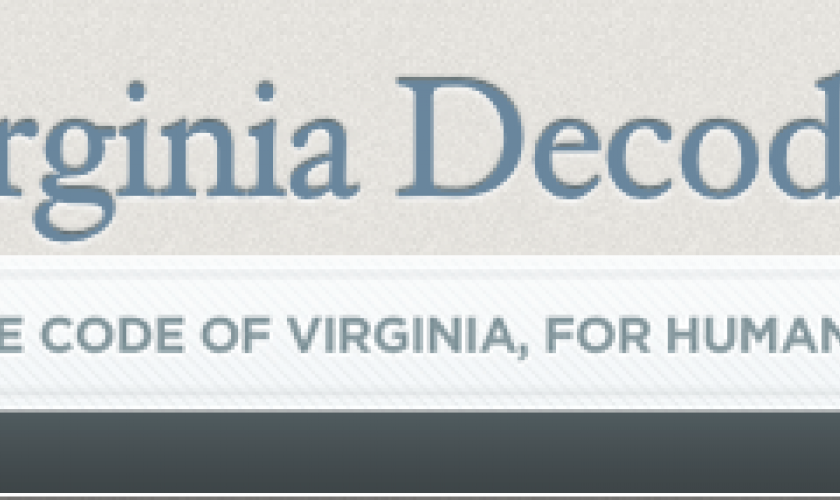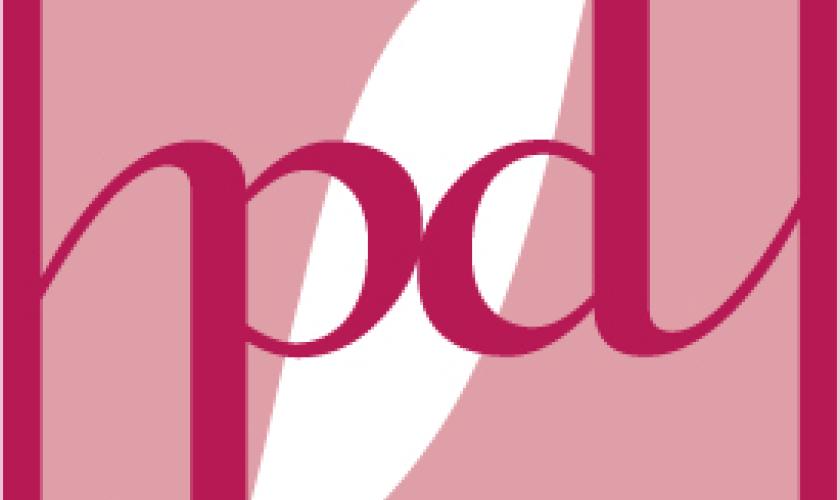Belgian courts have quite often been called upon to judge whether a newspaper article or television program breached particular rights of third parties, such as in defamation cases and cases where the privacy of third parties was at stake. Media lawyer Bart Van Besien gives a summary of the liability of journalists for defamation and breach of privacy.
BRUSSEL - Belgian courts have quite often been called upon to judge whether a newspaper article or television program breached particular rights of third parties, such as in defamation cases and cases where the privacy of third parties was at stake. Media lawyer Bart Van Besien gives a summary of the liability of journalists for defamation and breach of privacy.
As applied to the civil liability of journalists, courts construct the duty of care of journalists to imply that a journalist should pursue the truth, should not use unnecessarily or excessively hurtful words and should respect personal rights such as the right to privacy. As such, the general lines in case law show that civil courts tend to condemn inaccurate or incorrect imputations where there is an obvious lack of evidence; unnecessarily or excessively hurtful words with the sole intention to damage; and breaches to the privacy or other personal rights of individuals.
Burden of proof in defamation cases
In cases where the honour or reputation of people is at stake (such as in defamation and libel cases), the burden of proof to substantiate the veracity of facts reported often rests with the journalists. Defamation is a criminal offence in Belgium, but is rarely brought before a criminal court (one of the reasons is that defamatory remarks that are published in the press constitute a so called 'press offence', which according to Article 150 of the Belgian Constitution should be judged by a jury in the 'Court of Assizes'; public prosecutors are very reluctant to bring a case against the press before the 'Court of Assizes' and direct criminal prosecution by the victim of a press offence is not possible under Belgian law). [1]
In exceptional cases where a libel or defamation case is brought before a criminal court, the burden of proof of the veracity of the imputations will rest with the journalist, but the burden of proof of the ‘intentional’ element [2] will rest with the claimant, not the journalist. In other words, the claimant will have to prove that the journalist had the intention to damage (it is needless to say that it is often difficult to prove this).
In practice, cases involving a degradation of one's honour or reputation will almost always be brought before a civil court, not a criminal court. In a civil court procedure, the burden of proof in such cases will normally rest with the journalist. As such, one could say that freedom of the press ends where libel or defamation begins. Journalists are not allowed to use the secrecy of their sources as an argument to limit their liability in this regard.
Distinction between facts and opinions
According to the case law of the European Court of Human Rights (ECtHR), a basic distinction has to be drawn between facts and opinions (also called value judgments), as concerns the liability of journalists. With regard to factual descriptions, journalists are required to carry out their research based on sound journalistic principles (which include critical assessment of sources and double-checking with other sources). When they live up to their journalistic principles, they can in principle not be held accountable if after publication the facts turn out to be false. This obliges journalists to work accurately, but simultaneously excludes them in principle from pecuniary damages.
The ECtHR considers that an opinion published in the media enjoys even broader protection than a description of facts. [3] Contrary to factual information, the truth of an opinion is in principle not susceptible to proof. An opinion may, however, be considered excessive, in particular in the absence of any factual basis. [4] In practice, civil proceedings against the press will often be based on opinions that have been published, rather than on factual reporting. When judging the civil liability of journalists in such cases, courts seem to deal with a criterion of ‘carefulness’ rather than of ‘truth’.
Specific circumstances: criticism towards public figures such as politicians
Courts will also take into account the specific circumstances of a case, such as the context of the news reporting, the public position of the persons that are named, the features of the media type and the normal expectations of the targeted public (which may vary according to the type of media used). The Belgian courts seem to offer a particular tolerance for journalistic practices towards public figures such as politicians (and to a lesser degree, towards other public officials), especially during election periods.
This Belgian case law is in line with the jurisprudence of the ECtHR, which accepts wider limits of acceptable criticism with regard to public figures and especially with regard to politicians. [5] According to the ECtHR’s well-established case law, the limits of criticism are also wider with regard to governments and public servants such as judges, public prosecutors, police officers and members of the military. [6]
Contribution to a debate of general interest
As a general rule, the ECtHR affords a high level of protection to freedom of expression rights enjoyed by the media in cases that concern matters of public interest. This is not only important for defamation cases, but also for cases concerning the right to privacy (which is protected by article 8 ECHR and article 22 of the Belgian Constitution).
In cases that do concern matters of public interest, the right to one's honour or reputation or the protection of one's private life may to a certain degree give way to the freedom of the press to impart information of public interest. This is especially the case when journalists ‘are acting in good faith and on an accurate factual basis and [when they] provide reliable and precise information in accordance with the ethics of journalism’. [7]
On the contrary, when a journalist's statements do not concern the public interest or a matter of general concern, courts will be less tolerant in accepting a degradation of one's honour or reputation or an intrusion in somebody's private life. This is in particular so if a journalist publishes his or her statements as facts rather than as an opinion or a value judgment. Obviously, this is even more true if the journalist has not properly verified his or her sources or uses unnecessarily offensive or hurtful language to express his or her ideas.
With regard to public figures, it is important to take into account that, under the case law of the ECtHR, public figures such as politicians, actors, or members of royal families also enjoy the protection of their private life. For instance, in the case von Hannover v. Germany [8] the ECtHR made it clear that information on public figures (such as photographs or articles) can only be published when they contribute to a debate of general interest, and not when they satisfy mere sensation. In other words, the decisive factor in balancing the protection of private life or reputation against freedom of expression lies in the contribution that the publication makes to a debate of general interest.
Journalism ethics
Courts often take into account rules of journalism ethics to concretise the concept of ‘fault’ which may lead to liability. The reasoning behind this is that respect for one’s own rules is considered an important element under the general standard of care concept of a ‘bonus pater familias’ and under the specific standard of care concept of a ‘normally careful and observant journalist’.
In practice, courts will quite easily accept a fault of a journalist when a victim is able to prove that a journalist manifestly violated journalism ethics (for instance, in cases where a journalist did not properly check his sources, did not hear all parties concerned, etc.). However, a court will always have to check whether a legal rule (rather than - or in addition to – an ethical rule) has been violated and it does not suffice to state that a journalist committed a fault against journalism ethics or to refer to a decision of a self-regulatory organisation. A breach of ethical rules will often be a criterion amongst other criterions taken into account by a civil court when deciding on whether a journalist has committed a fault, and whether he or she needs to compensate for damages caused by this fault.
In specific circumstances, the European Court of Human Rights (ECtHR) in cases concerning Belgium, has also taken the respect by journalists of their professional ethical codes as a criterion. In the case De Haes and Gijsels v Belgium, the ECtHR explicitly referred to the (ethical) obligations and responsibilities of the press. In paragraph 37, the ECtHR states ‘that the press plays an essential role in a democratic society.
Although it must not overstep certain bounds, in particular regarding the reputation and rights of others, its duty is nevertheless to impart - in a manner consistent with its obligations and responsibilities - information and ideas on all matters of public interest, including those relating to the functioning of the judiciary’ (emphasis added). [9] In the specific circumstances of the case, the ECtHR judged that the information ‘was based on thorough research’ and that ’the applicants cannot be accused of having failed in their professional obligations’ (paragraph 39). The ECtHR has in various other judgments repeated the reference to the obligations and responsibilities of the press. [10]
Another field in which Belgian courts and the ECtHR have explicitly taken account of the respect of journalists for their professional ethical codes is the question of whether journalists may commit (minor) offences in order to gather information and report on issues that are of major public interest. The ECtHR, under certain specific circumstances (which mainly boil down to the principles of proportionality and subsidiarity), has accepted that journalists may commit minor offences. [11]
The ECtHR in particular takes into consideration whether or not journalists comply with their codes of journalism ethics. For example, in the ECtHR decision Masschelin v Belgium of 20 November 2007, the ECtHR took into account the fact that the journalist had provoked a criminal offence, by inciting the civil parties to copy a criminal file and hand this copy over to him (abuse of right of access to a criminal file is punishable under Article 460ter Criminal Code; the ECtHR stressed that the journalist’s behaviour did not conform to journalism ethics). [12]
Compensation granted is often symbolic
Given the difficulties for a restoration in kind or even for an adequate assessment in financial terms of the damage caused, compensation granted by civil courts in Belgium is often symbolic. [13] In theory, compensation should be proportionate to the damage and may not take a punitive character. Courts regularly also order the judgment to be published in the media that was at the basis of the condemned practice, with or without a non-compliance penalty. Within self-regulatory systems (see RVDJ and CDJ), sanctions are often limited to a moral condemnation and the (non-binding) obligation to publish the decision.
In Belgium, abuses of civil proceedings against journalists (for instance, in the hope to silence them (i.e., chilling effect of court procedures)) have in the past led to condemnations of the claimants themselves for ‘frivolous and vexatious proceedings’. This can give rise to claimants being required to pay substantial damages to the defendants. [14]
--
Author: Bart Van Besien (Bart [at] Finnian.be (e-mail)), Attorney/Lawyer specialised in media law and intellectual property law at Finnian & Columba. Article originally published on www.newmedia-law.com.
--
[1] 'Hof van Assisen' in Dutch or 'Cour d'Assises' in French. See Article 150 of the Belgian Constitution and Article 443 of the Belgian Criminal Code.
[2] The so called 'animus iniurandi'.
[3] ECtHR, Avgi Publishing and Press Agency S.A. and Karis v. Greece (no. 15909/2006), 5 June 2008, para. 26.
[4] See ECtHR, Lingens v Austria (no. 9815/82), 8 July 1986 and ECtHR, De Haes and Gijsels v Belgium (no. 7/1996/626/809), 24 February 1997 (confirmed by various other judgments of the ECtHR).
[5] E.g. ECtHR, Lingens v. Austria (no. 9815/82), 8 July 1986, and ECtHR, Turhan v. Turkey (no. 48176/99), 19 May 2005.
[6] E.g. ECtHR, De Haes and Gijsels v Belgium (no. 19983/92), 24 February 1997.
[7] ECtHR, Fressoz and Roire v France (no. 29183/95), 21 January 1999, para. 54.
[8] ECtHR, von Hannover v. Germany (no. 1) (no. 59320/00), 24 June 2004.
[9] ECtHR, De Haes and Gijsels v Belgium (no. 7/1996/626/809), 24 February 1997.
[10] Between others, ECtHR (Grand Chamber), Pedersen and Baadsgaard v Denmark (no. 49017/99), 17
December 2004; ECtHR (Grand Chamber), Fressoz and Roire v France (no. 29183/95), 21 January 1999; ECtHR (Grand Chamber), Perna v Italy (48898/99), 6 May 2003.
[11] See for instance, ECtHR, Fressoz and Roire v France (no. 29183/95), 21 January 1999 and ECtHR, Stoll v Switzerland (no. 69698/01), 10 December 2007.
[12] ECtHR, Masschelin v Belgium (no. 20528/05), 20 November 2007.
[13] Another element explaining the success of mere symbolic compensations is the difficulty to substantiate a causal link between the journalistic fault and the damage caused.
[14] See for instance Court of Appeals Antwerp, 14 May 2001, Auteurs & Media 2002/3, 281.






